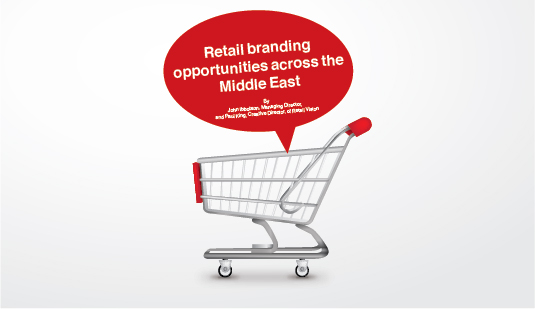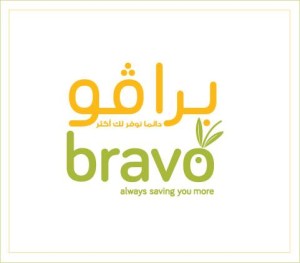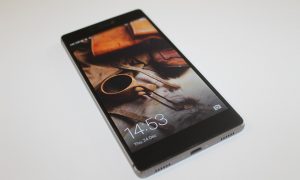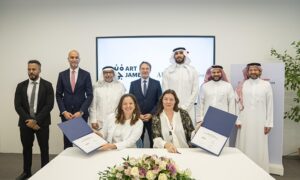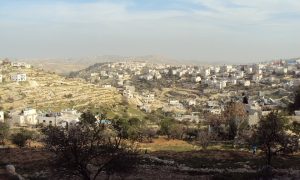Retail branding opportunities across the Middle East
By John Ibbotson, Managing Director, and Paul King, Creative Director, of Retail Vision
Retailing in the more stable areas of the Middle East is booming. Everyone everywhere needs, and most of us love, to shop! It is something we all have in common.
In the supermarket sector, which is where Retail Vision specialises and where we will focus for most of this article, there is a thirst for modern, easy to shop, efficient stores providing categorised products to meet customers’ wants and needs. Those who are ‹quenching› this thirst are either western imports, such as Carrefour or Spinneys, or western copies, like Zain or Panda. All credit to them, they have done very well.
But there now remains a significant opportunity for growth for Middle Eastern retailers to take all the best practices western retail formats offer, and then step-up, stand-up and break free. The opportunity is to create retail brands to re-connect to the local, national and Arab brand values that reflect their customers.
This boom in the Middle Eastern retail market has come from copies of, or in the main from, international brands themselves, opening their standard retail formats with the same offerings from Manchester to Medina to Mumbai to Melbourne to Miami. Their product assortment adjusts to match local needs but their mindset is much the same the world over.
In a world where scale and speed to market are the main competitive advantages for global retailers, Middle Eastern retailers need to differentiate to compete and achieve lasting success. Otherwise this successful hegemony will eventually consume them. The history of retailing is littered with the corpses of local retailers that thrive in booming and emerging markets, but close or are acquired as competition intensifies, markets mature and customers demand more. It doesn’t have to be this way.
Unfortunately though, too often Middle Eastern retail chains have copied these western brands rather than try to be different; this article will show how to correct this. Imitation is said to be the sincerest form of flattery and can deliver success, though whether that can ever be enduring success is unlikely. The result is often a soulless derivative, a parody of a western brand, a sad and forlorn copycat, with no direct relation to the local market and importantly to its customers, apart from an aspiration to be ‘modern’. It leaves local customers satisfied at a basic level but with a feeling that something is missing.
Big branded global supermarket retailers know to never do that in the ‘engine room’ of their home markets, they know loyalty, incremental sales and the longevity of their profits are at risk! When they forget that, usually through hubris or inertia, they suffer. This explains much as to why Tesco in the UK, the second biggest retailer in the world, recently posted their worst results ever, losing billions from their bottom line, which will take years to get back (if it ever can). Customers can be very unforgiving when trust dissipates and they have better choices. Good retailers are forever vigilant; they think very carefully about their brands, build them up over years, and always work to adjust their proposition so they reflect an intense and deeply respectful understanding of their customers and their changing desires. That’s something Palestine and the Middle East deserve, and they are just not getting enough of it.
Middle Eastern retailers must cut loose from this unquestioning imitation of western retail formats and create retail brands that contain local, national and Arab brand values communicated in a way local customers appreciate and understand. This provides customers with what they really want, and all the best retailers know they exist to do just that and to strive to always be better. That is what real and lasting retail brands do: they are famous for something, they create a relevant point of difference, and they connect with their target customers at all levels and build meaningful competitive advantage from doing so.
Bravo Supermarkets in Palestine
At its core, supermarkets are all about food first and foremost; and food retailing is always local. Food is at the heart of our most basic and enduring human construct, the family; and eating food is what we have done since time immemorial. Family and food, a joyful coming together of who we love and what we love to eat. Think about all that we celebrate in life together and our best memories. How often are good people and good food intertwined, and intrinsic to that uplifting sense of value and wellbeing? Nearly always!
This can be achieved in two ways, singularly or together:
Inventing new retail formats and brands for Arab customers, or
By taking a successful local format, re-branding and re-articulating its purpose – not just the sign above the door.
Both routes require the creation of brand values relevant to the local market, to enable the retail brand to engage customers and communicate appropriately and effectively with them.
Bravo Supermarkets, the retail arm of the Arab Palestine Investment Company, did just this.
Bravo own and operate Palestine’s only multi-city modern supermarket chain. They operate in a market where the ‘Israeli settlement’ supermarkets of Rami Levi in the West Bank take the largest market share of Palestinian customers. It is a market dominated by ‘corner shops’ and ‘middlemen’ with the high prices, indifferent service, poor availability, limited hygiene, lack of choice and frustration for customers. It is also a market where a few specialists offer ‘better’ – but not ‘much better’. Certainly they would not survive anywhere else in the world where harder, fairer and freer competition delivers better outcomes for customers. And it is a market that sees one of the world’s lowest market shares for organised modern supermarkets, with less than 5%. Corner shops are convenient, but they are simply not good enough for customers who deserve and want better; ‘Israeli settlement’ supermarkets offer better but they are hardly appropriate in the Palestinian context.
Bravo identified the opportunity to build a chain of neighbourhood supermarkets, of around 2000m2, complemented by easy access large car parks, a place for kids to play and for the family to eat, drink and smoke together, check out the latest electronic gadgets, and access to ATMs. The aim is to deliver modern, local and relevant retailing to the people of Palestine. They are a people, who despite living with the impediment of occupation, are well-educated, creative and technically-savvy, and who share a great and complex history, politics and culture. They are warm, friendly, caring, kind and trusting family people who sometimes need a hand-up in life, not a hand out – this was the enduring commonality in our research. For certain, at the margins there are some matters of life – intolerance, violence, corruption, bureaucracy and disorganisation – that are wrong and deeply negative, and that is too often seen by others elsewhere as how it actually is. However, this is a flawed caricature. We did not see or feel that these negatives represented what most people want to be or indeed are, and it is a shame that they have little to express the positivity nationally in an engaging and inspiring way.
A new concept – minus the ‘speedy’ shopping trolley
When you set to build a brand, especially in food retailing, you have to consider all of this so you can underline the positives and engage with them in a hopeful way. If ever there was a supermarket brand waiting to emerge to fill that huge gap, it is here. And being mindful of this, we have re-branded the existing Bravo estate already, and so far customers love it.
Retail Vision, a leading UK retail consultancy, was engaged to review Bravo Supermarkets and its place in the Palestine grocery market. Using over 40 years of retail best practice experience, and with some of the world’s best and most experienced retailers working for it, Retail Vision helped the Bravo team create a retail brand identity and store design that would communicate both the improved store concept and Bravo brand values.
Bravo’s brief to Retail Vision was to develop the brand as a modern, hopeful, good value Palestinian supermarket. Bravo’s existing business took much of the best of the ‘West’, offered great value, helped lower expensive retail prices, spurred the market to improve but their branding copied western supermarkets, with a logo of a ‘speedy’ shopping trolley that showed little emotion, empathy and ultimately relevance to Palestinian shoppers’ lives. Much the same dull irrelevant branding is used by many supermarkets in Palestine.
Engaging market research, discussion workshops and analysis of the Palestinian grocery market, the team at Retail Vision offered an in-depth review of the current retail and customer climate. Armed with this, a new positioning for Bravo was developed. The new concept expresses Bravo as Palestinian, positive, natural, friendly, modern with a nod to tradition, aimed squarely at the mid-market and the mainstream. It is a brand that has created an inclusive environment for everyone to feel welcome, to enjoy and to save money, and critically to reflect what is most important to their customers; helping everyone along on their journey to what they would like to become.
This had to be communicated to the various key sectors that make-up the ‘Palestinian customer’ in a design that was local and relevant to their lives.
Retail Vision designers and the Bravo team were then deeply culturally immersed in Palestine – from customer listening groups, to their homes, to their families, to their places of worship, through their checkpoints, to their factories and places of work, to their museums, their shops, their souks, their restaurants, coffee shops and entertainment places – we lived it all! This fresh insight helped Bravo identify its heart. The culture, history, texture, colours and visual references of its customers and how they live their lives were all used to then develop that, so as to communicate the Bravo brand values at all the touch-points customers came into contact with Bravo.
Retail Vision proposed several creative concepts for the brand based on this, expressed in bold natural colours, a variety of shapes and clear quality photography and typefaces. The concept direction was based on the family using the culture and history of Palestine as an emotional basis to communicate, connect and create a relevant dialogue with customers.
The logo concept chosen was based on the olive being “a timeless symbol of peace, prosperity, productivity and fertility”. The olive, potentially a Palestinian cliché, was given a contemporary treatment in striking greens and oranges – colours and references that are deeply attached to its people. This was accompanied by a new stylised font that is used consistently in all applications – a font in a contemporary Arabic style, coupled with English, so the brand can connect to native Arabic-speakers as well as those returning to visit friends and relations from the Palestinian diaspora with weaker Arabic language skills.
The existing supermarket estate was refreshed with this new look in Summer 2015, and the new format for Bravo’s modern Palestinian supermarkets will be unveiled in the first of its new stores to open in Nablus in Spring 2016. This store will prove to be a revolution in the Middle Eastern retail market, the first to pull away from the ‘off the shelf’ western format, weak local copycats, and deliver a fully developed retail brand and experience for today’s Palestinian families. This opportunity is everywhere in the Middle East.
Other examples in the Middle East
Looking at some other examples Retail Vision has worked on, the launch of the Dubai Destination Brand mirrors some elements used for Bravo. This was launched this year by the Dubai Department of Tourism and Commerce to spearhead a new global marketing campaign to retail the concept of Dubai worldwide.
The new logo features the word ‘Dubai’ written in both Arabic and Roman alphabets, representing the city as a fusion of cultures and nationalities. The brand is being used as a new way of communicating to both tourists and investors about Dubai, in a more welcoming way than the old authoritarian Dubai logos allowed for. It has been cleverly designed so that it communicates well in both English and Arabic, and can be developed in different formats and colours to suit the situation, but still remains both indigenous to Dubai, and with a classic look that works internationally. The design uses the best of Dubai culture in a modern, intelligent way that reflects a unique identity.
The final example is that of Jawwal which has over 80% of the Palestinian cellular communication market. The company, founded in 1999, launched with a far too contemporary logo that had by 2012 dated considerably. They simply had not thought about branding properly. The existing Jawwal brand logo, for example, was hard to execute consistently because of its complexity, and inability to reproduce well at small scale. In 1999 it was contemporary – but as with all far too contemporary designs – by 2012 it looked anachronistic, and for a technology company to look out of date makes no sense.
Wisely, by 2012 Jawwal realised this and updated their brand, engaging external brand design expertise they lacked internally. It updated its logo with a flatter, more abstract design that conveyed ‘connectivity’ more simply. A flatter logo can scale much more easily, solving the problem of the old logo which looked great big, but terrible small. And the new brand maintained a local reference in the colours and shapes it used; the blue skies and green olives of Palestine.
The three brand examples of Bravo, Dubai and Jawwal stand out in the Middle East as not just a western copy, or a simple picture of an organisation, or a personal preference of an owner/CEO, but as much more intelligent, more thoughtful use of ideas that reflect the brand values and heritage of the countries they operate in and the customers they serve. Like all good brands, they communicate this in a modern way, with a clear nod to tradition and classicism, in a way that will not only last but because their brand is rooted in the communities it serves, and can be developed as their society and people progress. That is how a Middle East brand should be.

